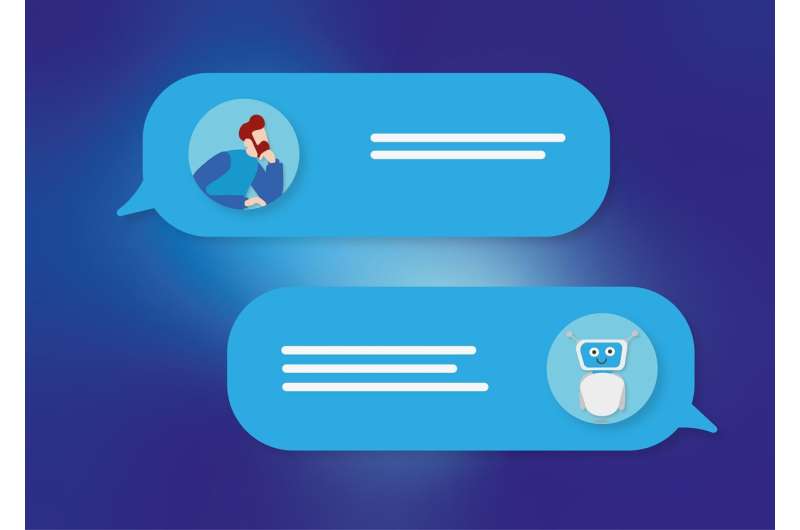This article has been reviewed according to Science X's editorial process and policies. Editors have highlighted the following attributes while ensuring the content's credibility:
fact-checked
trusted source
proofread
Use of automation in informed consent process for genomics research studies yields wider reach and better understanding

The informed consent process in biomedical research is biased towards people who can meet with clinical study staff during the working day. For those who have the availability to have a consent conversation, the time burden can be off-putting.
Professor Eric Vilain, from the Department of Pediatrics, University of California, Irvine, U.S., will tell the European Society of Human Genetics annual conference today how results from his team's study of the use of a chatbot (GIA—"Genetics Information Assistant" developed by Invitae Corporation) in the consent process show that it encourages inclusivity, and leads to faster completion and high levels of understanding. Since such consent is the cornerstone of all research studies, finding ways of cutting the time spent on it while continuing to make sure that participants' understanding is not lessened has been clinicians' goal for some time.
Working with their institutional review board (IRB), Prof Vilain's team from across University of California Irvine, Children's National Hospital, and Invitae Corporation designed a script for the GIA chatbot to transform the trial consent form and protocol into a logic flow and script. Unlike conventional methods of obtaining consent, the bot was able to quiz participants to assess the knowledge they had attained. It could also be accessed at any time, allowing individuals with less free time to use it outside normal business hours.
"We saw that more than half of our participants interacted with the bot at these times, and this shows its utility in decreasing the barriers to entry to research. Currently, most people who participate in biomedical research have time to do so as well as the knowledge that studies exist," says Prof Vilain.
The researchers involved 72 families in the consent process during a six-month time period as part of the US national GREGoR consortium, a National Institutes of Health initiative to advance rare disease research. A total of 37 families completed consent using the traditional process, while 35 used the chatbot. The researchers found that the median length of the consent conversation was shorter for those using the bot, at 44 rather than 76 minutes, and the time from referral to the study to consent completion was also faster, at five as opposed to 16 days. The level of understanding of those who had used the bot was assessed with a 10-question quiz that 96% of participants passed, and a request for feedback showed that 86% thought that they had had a positive experience.
"I was surprised and pleased that a significant number of people would feel comfortable communicating with a chatbot," says Prof Vilain. "But we worked hard with our IRB to ensure that it didn't 'hallucinate' (make mistakes) and to ensure that knowledge was conveyed correctly. When the bot was unable to answer a question, it encouraged the participant to speak with a member of the study team."
While it is not possible to give an accurate account of cost saving, the time savings of staff were substantial, the researchers say. Because people can pause the chatbot consent process at any time, it can be completed much more quickly—for example, four participants completed in 24 hours. Of the consent conversations that were quick (less than an hour), 83% of them were with the chatbot. The consent conversations that were longer (between one and two hours), were with a study staff member (66%).
"But it's far from being just about speed," says Prof Vilain. "The traditional method of consenting does not have a mechanism to verify understanding objectively. It is based on the conviction of the study staff member hosting the conversation that the consent has been informed properly and the individual understands what they are consenting to. The chat-based method can test comprehension more objectively. It does not allow users who do not show understanding to give consent, and puts them in touch with a genetic counselor to figure out why knowledge transmission did not occur.
"We believe that our work has made an important contribution to the obtention of properly-informed consent, and would now like to see it used in different languages to reach global populations," he concludes.
Professor Alexandre Reymond, chair of the conference, said, "The keystone to informed consent should be that it is by definition 'informed,' and we should explore all possibilities to ensure this in the future."
More information: Abstract no. C28.3: Development and Implementation of Novel Chatbot-based Genomic Research Consent

















